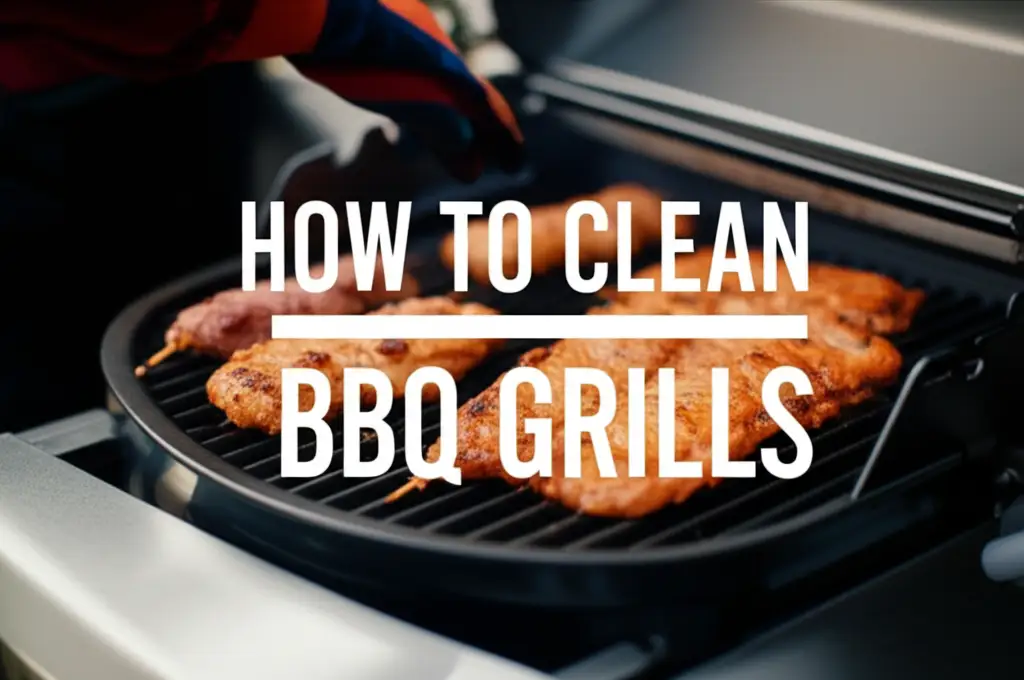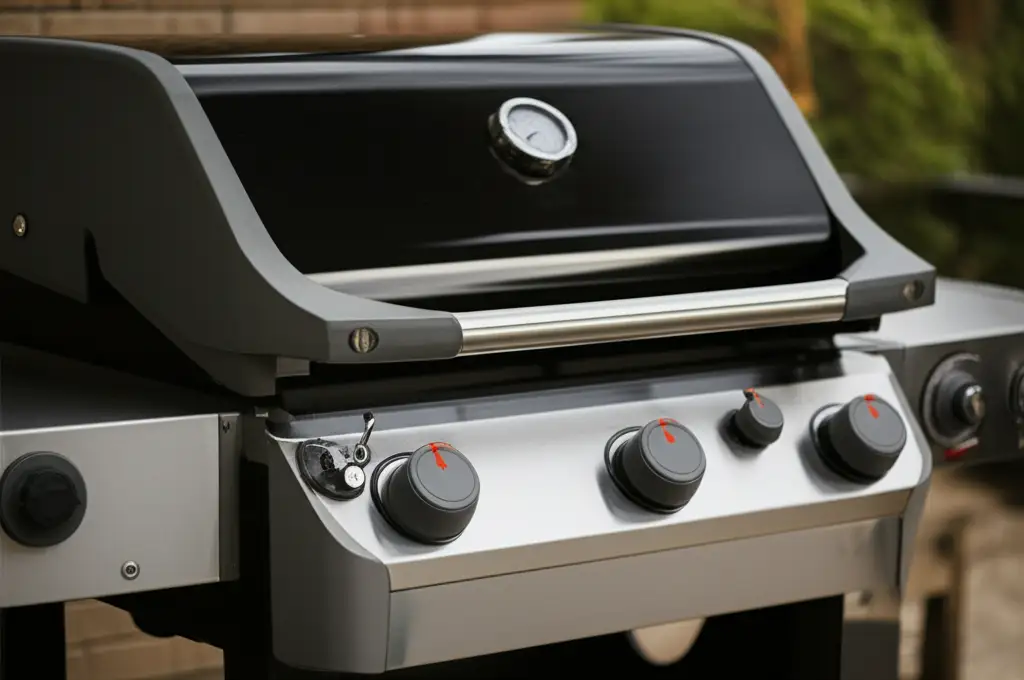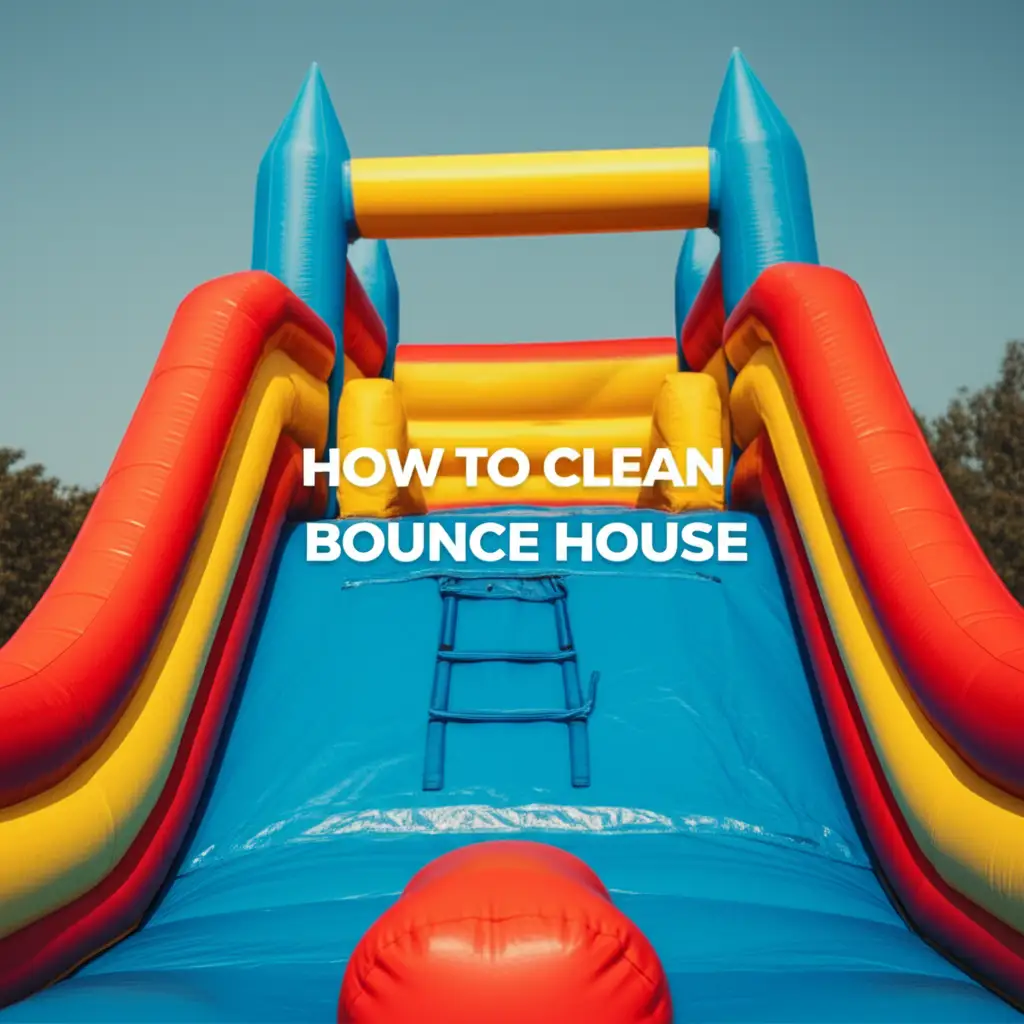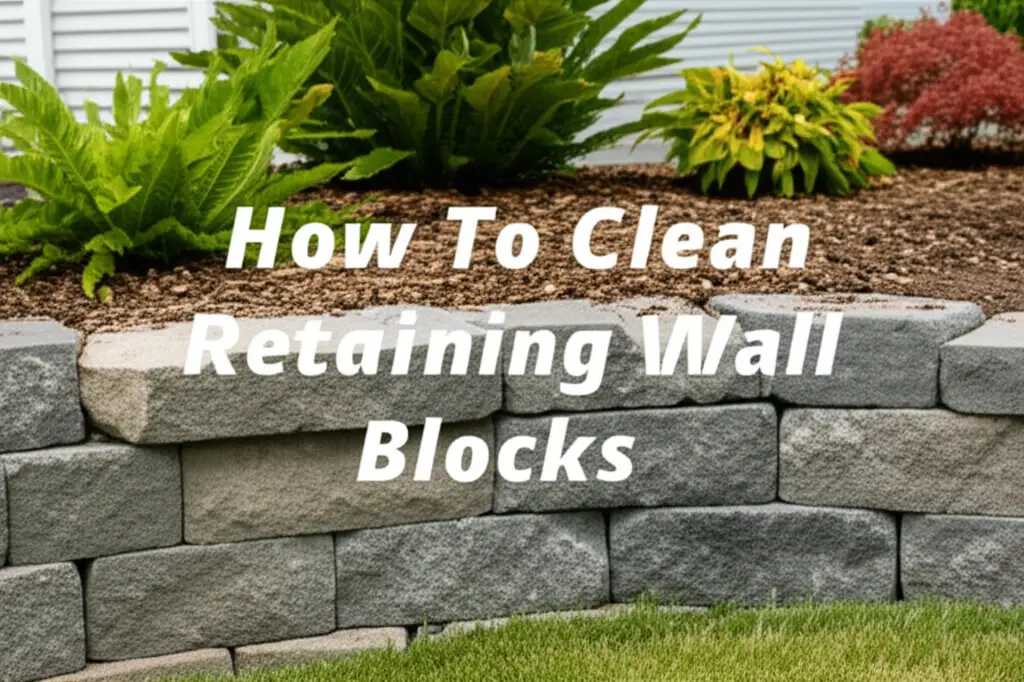· Outdoor Cleaning · 18 min read
How To Clean Grill Without Brush
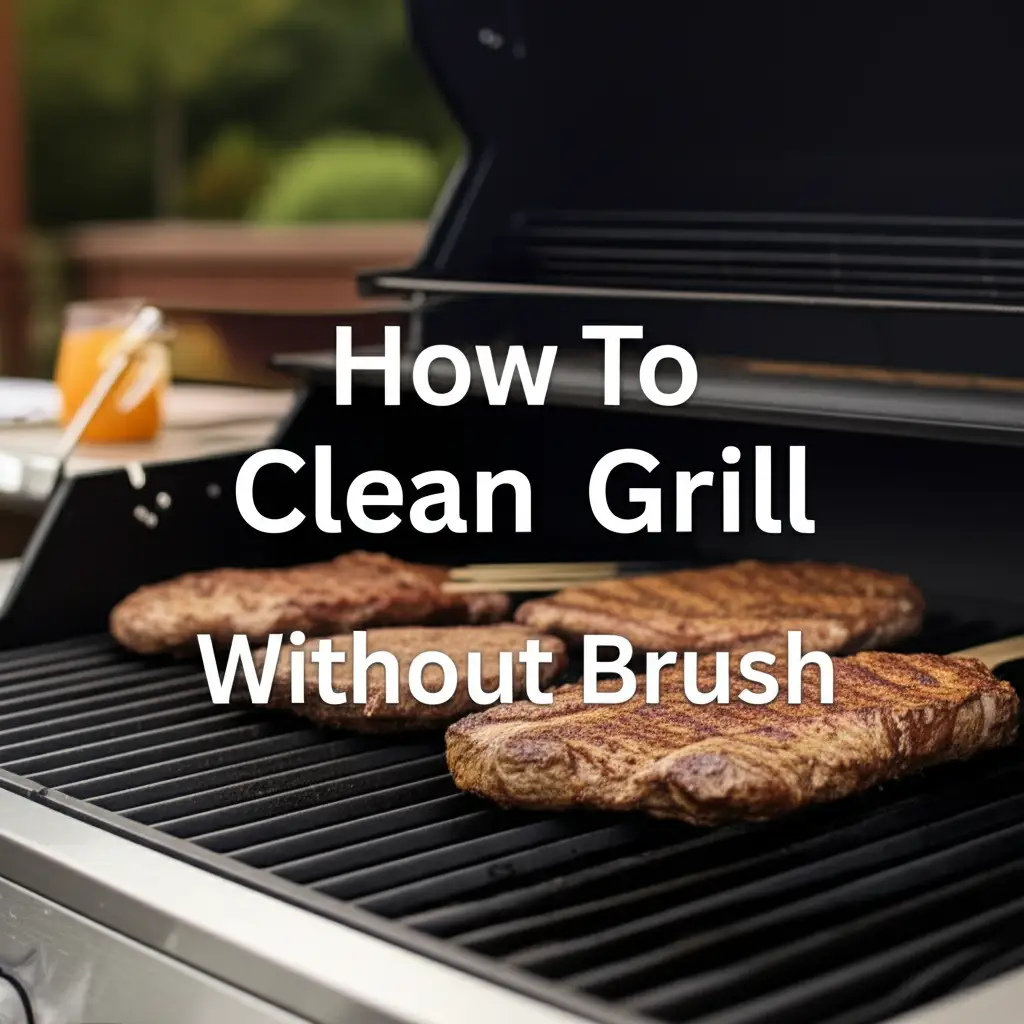
How To Clean Grill Without Brush: Safe & Effective Methods
Grilling is a favorite pastime for many people. It brings delicious food and good times. However, the joy of cooking outdoors often ends when it is time to clean the grill. Traditional wire brushes pose a hidden danger. Their bristles can break off and get into your food. This is a serious health risk.
Many grill enthusiasts look for safer cleaning options. They want to avoid these brush hazards completely. Learning how to clean a grill without a brush is a game-changer. It ensures your meals stay safe and your grill stays sparkling. You can achieve excellent cleaning results using simple household items and clever techniques.
This guide explores various effective methods. We will cover heat treatments, natural abrasives, and common kitchen products. You will discover how to keep your grill in top condition without ever needing a wire brush again. Prepare to make your grill cleaning routine much safer and more efficient.
Takeaway
- Avoid wire brushes due to bristle hazards.
- Use heat (burn-off or steam) for initial grime removal.
- Apply natural abrasives like aluminum foil or onions.
- Utilize household cleaners such as vinegar, baking soda, and soap.
- Consider specialized brush-free tools like grill scrapers.
- Maintain your grill regularly to prevent heavy buildup.
How do you clean a grill without a brush?
You can clean a grill without a brush using several effective methods. Apply high heat to burn off food residue, then scrape it away with aluminum foil or a dedicated grill scraper. Alternatively, create a cleaning solution with vinegar and baking soda to loosen grime. You can also use half an onion or a steam bath for efficient cleaning.
Why Avoid Wire Brushes? Understanding the Risks
Wire brushes have long been a common tool for grill cleaning. They seem to do a good job scrubbing away cooked-on food. However, these brushes carry a significant danger. Small metal bristles can break off from the brush. These bristles often stick to the grill grates.
When you cook, these tiny wires can transfer to your food. You might unknowingly swallow them. This presents a serious health risk. Ingested wire bristles can cause injuries to your mouth, throat, or digestive tract. They might even require surgery to remove. This risk is not rare; emergency rooms treat many cases each year.
The safety of your family and friends comes first. Choosing brush-free cleaning methods eliminates this danger completely. It ensures your grilled food is safe to eat. You do not have to worry about hidden metal fragments. This shift in cleaning tools offers peace of mind. It allows you to focus purely on enjoying your delicious meals.
Beyond safety, wire brushes can also scratch your grill grates. These scratches create rough spots. Food sticks more easily to rough surfaces. This makes future cleaning harder. Over time, constant scratching can damage your grates. It may reduce their lifespan. Safer alternatives clean effectively without causing this kind of wear and tear. They help maintain your grill’s condition.
The Power of Heat: Steam and Burn-Off Methods
Heat is a powerful cleaning agent for grills. Many people overlook its potential. High temperatures can loosen stubborn food particles and grease. This makes them easier to remove. Two primary heat methods stand out: the high-heat burn-off and steam cleaning. Both are excellent ways to begin your brush-free cleaning process.
High Heat Burn-Off
This method is simple and highly effective. After you finish cooking, turn your grill to its highest setting. Close the lid and let it run for 10 to 15 minutes. The intense heat will incinerate most of the leftover food and grease. They turn into ash. This process is similar to a self-cleaning oven.
Once the grill cools down, the ash will be easy to wipe away. You can use a damp cloth or a crumpled piece of aluminum foil. This step removes the bulk of the residue. It prepares the grates for a more detailed cleaning if needed. This method is especially useful for gas grills. You can easily control the temperature. For charcoal grills, simply let the charcoal burn down until it is ash and the grill is very hot.
Remember to let the grill cool down enough to handle safely before wiping. Do not touch hot grates with your bare hands. Always use heat-resistant gloves. This method is a fantastic first line of defense against grime. It prevents build-up from becoming too solid.
Steam Cleaning Techniques
Steam is another excellent way to harness heat for cleaning. It works by softening hardened food residue. You can generate steam in a few ways. One common method involves a spray bottle filled with water. While the grill is still warm (but not scorching hot), spray water onto the grates. Close the lid quickly. The water will turn into steam.
The steam works to loosen sticky bits of food. After a few minutes, open the lid. You will find the grime is much softer. You can then easily scrape it off with a non-wire scraper. This technique is particularly effective for sticky sauces or marinades. They can be hard to remove once they harden.
Another steam method involves placing a metal pan of water inside the grill. Let it heat up. The steam will fill the grill chamber. This softens all internal surfaces. Make sure to use a pan that can withstand high temperatures. This approach helps clean not just the grates but also the inside of the grill lid and walls. Steam offers a gentle yet powerful way to clean. It avoids harsh scrubbing. It also leaves no chemical residue behind.
You can also use a half onion. Just put it on a fork and rub it on the warm grates. The water in the onion creates steam. The natural acids in the onion also help clean the surface.
Natural Abrasives: Aluminum Foil and Onions
Once heat has done its initial work, natural abrasives come into play. These everyday items can scrub away tough grime. They do this without the risk of wire bristles. They are readily available and cost-effective. Aluminum foil and onions are two fantastic examples.
Aluminum Foil Method
Aluminum foil is a remarkably effective tool for scrubbing grill grates. After your grill has cooled down, crumple a large sheet of heavy-duty aluminum foil into a tight ball. Hold this ball with tongs or heat-resistant gloves. Use it to scrub the grates. The abrasive surface of the crumpled foil acts like steel wool. It scrapes away charred food particles and grease.
This method works especially well after a high-heat burn-off. The ash and loosened grime come off easily. For very stubborn spots, you can apply a little pressure. The foil will conform to the shape of the grates. This helps it clean between the bars. When one part of the foil ball gets dirty, you can simply unwrap it and re-crumple a fresh section. This extends its usefulness.
Always ensure the grill is cool enough to touch safely before using this method. Hot grates can melt the foil onto the surface. This creates new problems. The aluminum foil method is quick, easy, and requires no special tools. It is a fantastic way to get your grates looking clean and ready for your next cookout. Learn more about this specific method in detail here: how to clean grill grates with aluminum foil.
Onion Cleaning Trick
This might sound unusual, but an onion can be a surprisingly effective grill cleaner. The natural acids in the onion help break down grease and cooked-on food. The water content in the onion turns into steam when it hits the warm grates. This also aids in loosening debris.
To use this method, cut a large onion in half. Skewer one half onto a BBQ fork. While the grill is still warm (but not smoking hot), rub the cut side of the onion firmly across the grates. You will see grime begin to lift off. The onion’s natural juices and slight abrasiveness work together to clean.
You can also dip the onion in a bowl of water or vinegar for extra cleaning power. This adds more moisture and acidity. The onion trick is particularly satisfying. It leaves a subtle, pleasant aroma. It is a completely natural and chemical-free way to clean. Plus, it is something you likely already have in your kitchen. This method works well for both light cleaning and breaking down moderately stuck-on food.
Household Heroes: Vinegar, Baking Soda, and Soap
Your kitchen pantry holds powerful cleaning agents. Vinegar, baking soda, and dish soap are not just for dishes. They are incredibly effective at breaking down grease and grime on your grill. These natural solutions are safe, non-toxic, and readily available. They offer excellent alternatives to harsh chemical cleaners.
Vinegar Spray Method
White vinegar is a cleaning powerhouse due to its acetic acid content. It dissolves grease and food residue. You can create a simple yet potent grill cleaner with it. Mix equal parts white vinegar and water in a spray bottle. Shake it well to combine.
After your grill has cooled, spray the grates generously with this solution. Make sure to saturate all the dirty areas. Let the solution sit for 15-30 minutes. For very stubborn grime, you can let it sit longer, perhaps even overnight. The vinegar will work to loosen the tough, baked-on bits.
After soaking, use a non-wire brush, a crumpled aluminum foil ball, or a sturdy sponge to scrub the grates. The grime should come off much more easily. Finish by rinsing the grates with water. Wipe them dry to prevent rust. This method is excellent for general cleaning and maintaining shine. It leaves no harsh chemical residues. It is also good for cleaning the outside of your grill. For more exterior cleaning tips, see how to clean outside of black grill.
Baking Soda Paste Power
Baking soda is a mild abrasive and a natural deodorizer. It combines perfectly with vinegar for a formidable cleaning paste. To make the paste, mix about half a cup of baking soda with a few tablespoons of water. Add water slowly until you get a thick, spreadable paste.
Apply this paste generously to your grill grates. Focus on areas with heavy buildup. Let the paste sit for at least 20 minutes, or up to several hours for tougher stains. The baking soda will absorb grease and lift grime. For an extra boost, you can spray a little vinegar over the baking soda paste. This will cause a fizzing reaction. This bubbling action helps further break down deposits.
Once the paste has done its job, use a damp cloth, sponge, or non-wire scraper to wipe it away. The grime should come off easily with the paste. Rinse the grates thoroughly with water. Dry them completely. This method is especially good for tackling hardened, caked-on food. It is also gentle enough for various grate materials, including cast iron.
Dish Soap Soak
For removable grill grates, a dish soap soak is incredibly effective. Dish soap is designed to cut through grease. It works wonders on cooked-on food. Fill a large bucket, utility tub, or even your bathtub with hot water. Add a generous amount of heavy-duty dish soap. Swirl the water to create suds.
Carefully place your grill grates into the soapy water. Make sure they are fully submerged. Let them soak for at least a few hours, or ideally, overnight. The hot water and dish soap will soften and dissolve the baked-on grease and food particles. This prepares them for easy removal.
After soaking, much of the grime will rinse off directly. For any remaining stubborn spots, use a non-abrasive sponge or cloth to wipe them clean. A plastic scraper can help with any lingering bits. Rinse the grates thoroughly with clean water to remove all soap residue. Dry them completely before returning them to the grill. This prevents rust. This method makes deep cleaning grill grates simple and mess-free. It avoids harsh scrubbing. This method is also suitable for specific grill pans like a Le Creuset. You can find more details on cleaning such items here: how to clean le creuset grill pan.
Specialized Tools: Grill Scrapers and Pumice Stones
While the goal is to clean without a brush, some tools offer great brush-free alternatives. These specialized items provide leverage and abrasive power. They tackle stubborn grime effectively. They ensure your grill is spotless and safe.
Wood and Metal Scrapers
Dedicated grill scrapers are excellent investments. They come in various materials and designs. Wooden scrapers are popular. They slowly conform to the shape of your grill grates over time. This creates custom grooves. This custom fit allows them to clean incredibly effectively. You use them on warm grates. The heat helps the wood mold to the contours. Wooden scrapers are completely safe. They leave no bristles behind.
Metal scrapers are another option. These are typically flat, sturdy pieces of stainless steel. They often have notches designed to fit different grate shapes. Use metal scrapers when the grill is cool. This prevents scratching from excessive pressure on hot metal. Choose scrapers with comfortable handles. This allows for firm, safe gripping. They provide strong leverage to push off hardened food. These scrapers are durable and long-lasting. They offer a reliable way to remove heavy build-up without any brush-related hazards.
When using any scraper, apply firm, even pressure. Work methodically across each grate. Always scrape in one direction. This lifts the grime efficiently. These tools become invaluable for deep cleaning. They ensure you can remove even the most stubborn, baked-on messes.
Pumice Stones for Tough Grime
Pumice stones are natural, porous rocks. They are incredibly effective as gentle abrasives. They are often used for cleaning toilets or removing dead skin. But they can also work wonders on grill grates. The stone’s slightly abrasive texture can scrub away charred food. It does this without scratching the underlying metal.
To use a pumice stone, first wet the stone. This helps it glide smoothly. It also prevents too much dust. Gently rub the pumice stone over the dirty areas of your grill grates. The stone will break down some as you use it. This forms a slight paste. This paste helps with the cleaning action. It will lift away black residue.
This method is particularly useful for cast iron grates. It helps clean them thoroughly. For more specific information on cleaning cast iron grates, you can check out this guide: how to clean cast iron grill grates. The pumice stone is not harsh enough to remove the seasoning from cast iron if used gently. It cleans away the carbon buildup effectively. Rinse the grates with water after cleaning with a pumice stone. This removes any stone residue and grime. Always let the grill cool down before using a pumice stone. This ensures safety and optimal cleaning.
Deep Cleaning Grill Grates Without a Brush
Sometimes, your grill needs more than a quick wipe down. Deep cleaning is essential. It removes heavy buildup that affects cooking performance and taste. Doing this without a brush requires patience and the right approach. Focus on soaking and thorough wiping.
Start by removing the grill grates. This makes cleaning much easier. Place them in a large sturdy container. A large plastic tub, a utility sink, or even your bathtub can work. Fill the container with hot water. Add a generous amount of heavy-duty dish soap. This is the first step in breaking down tough grease.
For very stubborn, carbonized grime, add half a cup of baking soda to the water. A cup of white vinegar can also boost the cleaning power. The combination of hot water, soap, and these natural cleaners works to dissolve and loosen the gunk. Let the grates soak overnight if possible. The longer they soak, the less scrubbing you will need to do.
After soaking, much of the residue will have softened. Some might even float off. Use a sturdy sponge or a non-scratch scouring pad to wipe down each grate. The grime should come off relatively easily. For any remaining tough spots, a plastic or wooden grill scraper will be useful. Avoid abrasive scrubbers that can scratch the grate surface.
Once clean, rinse the grates thoroughly with clean water. Make sure to remove all soap and cleaning solution residue. Dry them completely with a towel or by air drying. This prevents rust formation. For cast iron grates, re-seasoning them after a deep clean is crucial. This protects them and maintains their non-stick properties. A deep cleaning regimen, done regularly, keeps your grill performing its best. It also extends its lifespan.
Maintenance Matters: Keeping Your Grill Clean
Regular maintenance prevents the need for intense deep cleaning. It also ensures your grill is always ready for action. Consistent small steps make a big difference. This routine keeps your grill sparkling and functioning optimally.
First, always clean your grill after each use. While the grill is still warm (but not too hot to handle), use a crumpled ball of aluminum foil or a damp cloth to wipe down the grates. This removes most food bits before they harden. A quick wipe takes minutes. It saves hours of future scrubbing. This simple habit is the cornerstone of easy grill maintenance.
Seasoning your grates, especially cast iron, is also vital. A thin layer of cooking oil prevents food from sticking. It also protects the metal from rust. Apply a light coat of high-heat oil (like vegetable or canola oil) to the grates. Do this using a paper towel. Re-season after every few uses or after a deep clean. This step significantly reduces food adhesion. It makes cleaning much simpler.
Periodically, wipe down the exterior of your grill. Use a mild soap and water solution. This keeps the outside looking good and prevents grime buildup. Don’t forget the inside walls and lid. Grease and smoke residue can accumulate there. A damp cloth often suffices. For gas grills, check the burners for blockages. Keep them clear for even heating. You can learn more about cleaning these parts here: how to clean burners on gas grill.
Finally, always cover your grill when not in use. A good grill cover protects it from weather elements. It keeps out dust, dirt, and pests. This simple act prevents outdoor grime from accumulating on your clean surfaces. A well-maintained grill is a joy to use. It lasts longer. It consistently delivers delicious results.
FAQ Section
Q1: Can I clean a grill with just water?
You can use water, especially hot water, to clean a grill. Hot water and steam help soften cooked-on food and grease. It works best on a warm grill. Spraying water and closing the lid creates steam, making residue easier to scrape off. However, for very stubborn grime, you will likely need the aid of a mild abrasive or cleaning solution.
Q2: Is it safe to use oven cleaner on grill grates?
Using oven cleaner on grill grates is generally not recommended. Oven cleaners contain harsh chemicals. These chemicals can damage some grill grate materials. They are also difficult to rinse off completely. Any residue left behind can be dangerous when heated. Stick to natural and less corrosive cleaning methods for safety.
Q3: How often should I clean my grill without a brush?
You should clean your grill grates after every use. A quick wipe while the grill is still warm prevents food from hardening. Deep clean your grill grates every few months, or at least twice per grilling season. This depends on how often you grill. Regular maintenance prevents heavy buildup.
Q4: What if food is stuck on very hard?
For very hard stuck-on food, a combination of methods works best. First, try a high-heat burn-off to turn residue into ash. Then, apply a baking soda paste or let the grates soak in a hot, soapy water solution overnight. Follow up with a plastic scraper or a crumpled aluminum foil ball for physical removal.
Q5: Can vinegar damage grill grates?
White vinegar is generally safe for most grill grate materials. Its mild acidity helps cut through grease and grime. However, avoid letting it sit for extremely long periods on bare cast iron without re-seasoning afterward. Always rinse grates thoroughly with water after using vinegar to prevent any potential mild etching over time.
Q6: How to prevent food from sticking to a clean grill?
To prevent food from sticking, ensure your grill grates are clean before cooking. Apply a thin layer of high-heat cooking oil (like vegetable or canola oil) to the grates just before placing food on them. You can use a paper towel dipped in oil. Also, preheat your grill thoroughly. A hot grill helps create a non-stick surface.
Conclusion
Cleaning your grill does not have to be a chore. It certainly does not require a dangerous wire brush. We have explored many effective and safe methods. You can achieve a spotless grill using heat, common household items, and specialized brush-free tools. These techniques protect your health. They also extend the life of your grilling equipment.
From the simple power of a high-heat burn-off to the natural scrubbing ability of aluminum foil and onions, you have many options. Vinegar, baking soda, and dish soap offer powerful cleaning solutions. They do this without harsh chemicals. Dedicated grill scrapers and pumice stones provide excellent physical scrubbing without bristles. Knowing how to clean a grill without a brush ensures safer, more enjoyable outdoor cooking.
Embrace these brush-free methods. Make them a regular part of your grilling routine. You will find that keeping your grill pristine is easier than you thought. Enjoy your next barbecue with peace of mind. Your food will be safer. Your grill will look great. Start implementing these safe cleaning tips today and grill with confidence!
- grill cleaning
- brushless grill cleaning
- natural grill cleaner
- grill maintenance
- safe grilling
- BBQ cleaning
- cleaning hacks

